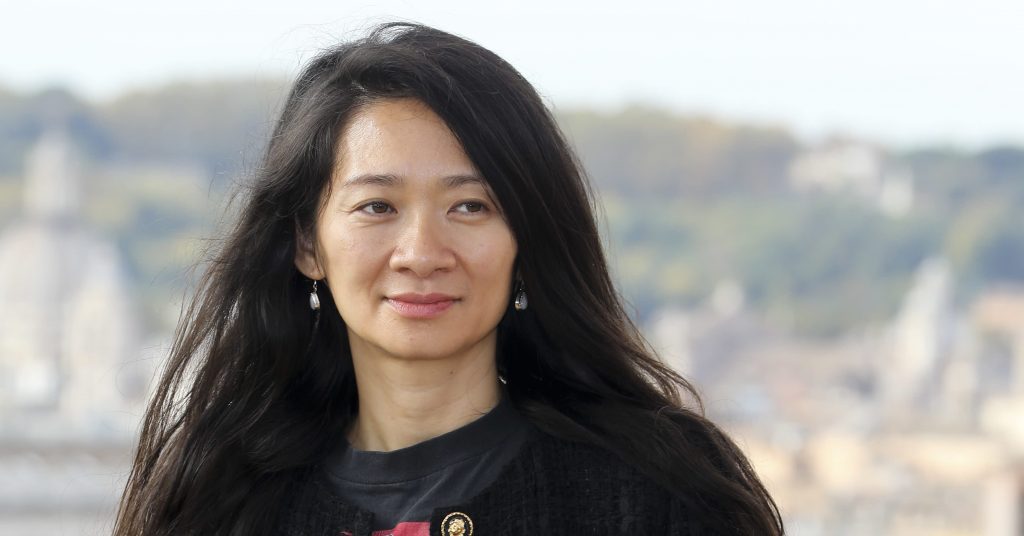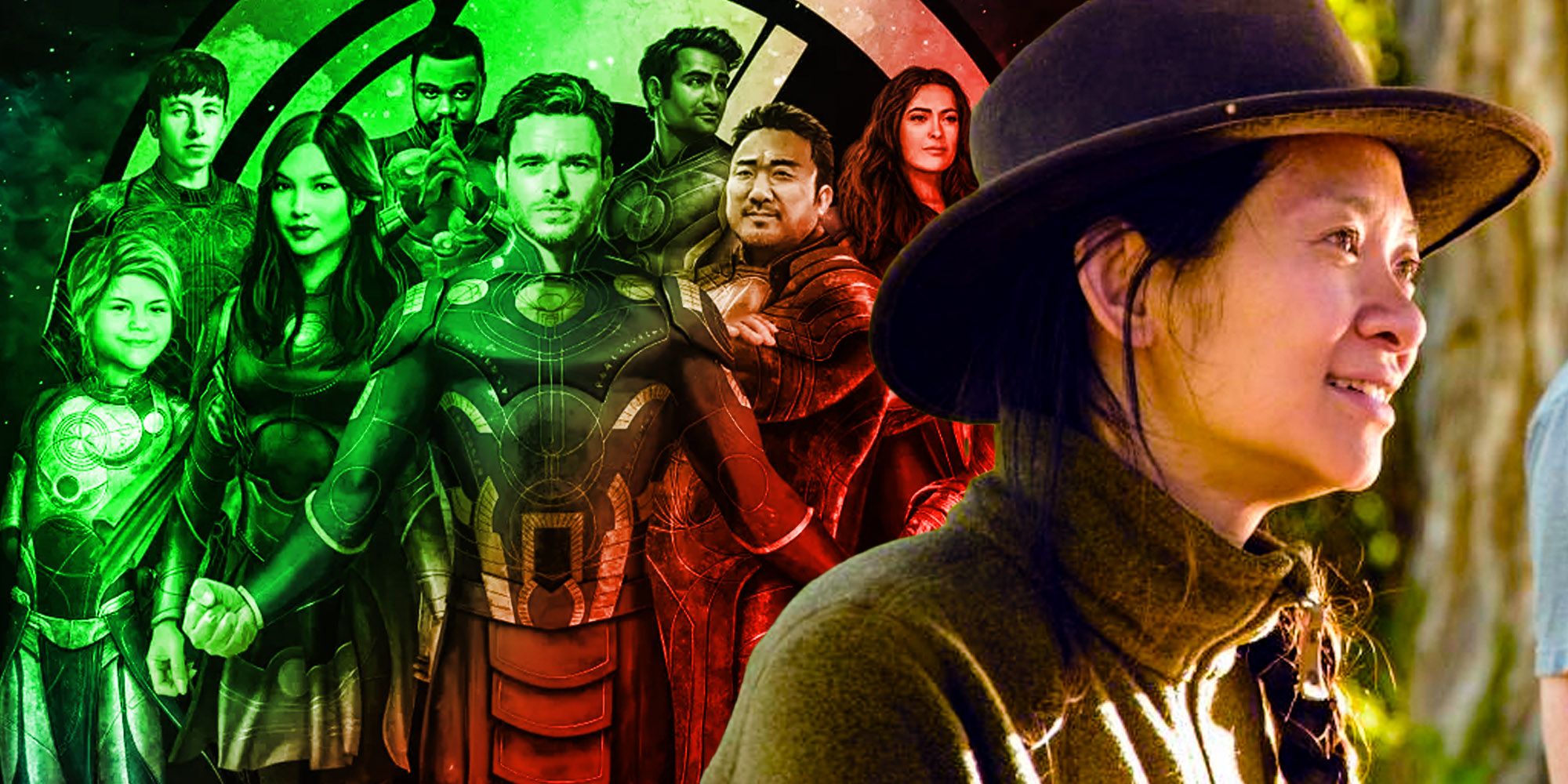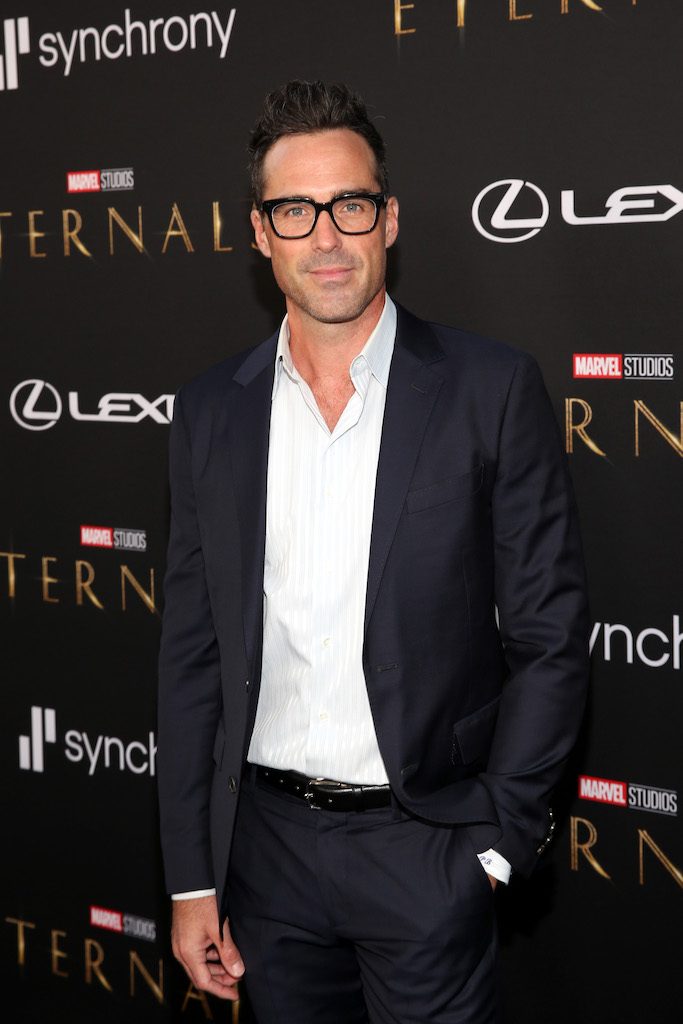MCU films are sometimes written by committee overseen by the Ministry Of Marvel. Sometimes the committee members converge while other times they work independently.
The Firpo cousins wrote an early draft of Eternals with director Chloé Zhao to set the foundation of the story. Later on, Patrick Burleigh (Ant-man and The Wasp), who is no stranger to the MCU, co-wrote a subsequent draft with Chloé which became the shooting script. Burleigh spoke to Creative Screenwriting Magazine about his experience on the project.
Burleigh entered the MCU through the Marvel Writers Program where he immersed himself in their entire comic book catalog. “I had an office at Marvel and went through their comic book back catalog for almost a year,” he recalled. His primary role was to find suitable material and subsequently pitch adaptations of these comics and write scripts. While on the Program, he met Nate Moore (a producer on Eternals) to guide him through the process.
He confessed to the Marvel Writers Program being a crash course in all things Marvel in spite of him being a long time fan of the comics since childhood. “It was an indoctrination into the way they work and what they’re looking for.”
After graduating from the Program, he worked on the set of Ant-man and The Wasp, where he wrote the reshoot material.
While Chloé Zhao worked on her Oscar-winning Nomadland, she also spent six months working on her version of Eternal. Chloé wanted to take the story written by Ryan and Kaz Firpo in a different direction so she essentially did a page 1 rewrite. Since Zhao was already in pre-production on Nomadland, Marvel executives suggested she work with another writer familiar with the comics – Patrick Burleigh.
“I understood her vision for Eternals on a tonal and conceptual level,” stated Burleigh. This appreciation paved the way for a fruitful collaboration between them. Patrick Burleigh considers Chloé Zhao “an auteur” with complete creative control of her films. That said, Chloé’s take on Eternals had to lie within the confines of a Marvel movie. “Marvel leave you room to be inventive, but there are parameters they set,” commented Burleigh. “They make all their movies in an intentional way.”
Discussion Document
Marvel commenced the development process on Eternals with a discussion document of what they want to see in the Eternals movie. “It laid out that the Celestials were the bad guys, the Deviants would be a red herring, the love story between Sersi (Gemma Chan) and Ikaris (Richard Madden)… Ikaris would eventually betray the other Eternals… and we might even have a same-sex couple.” Ryan and Kaz Firpo worked closely with producer Nate Moore to include all these elements in their draft. Zhao and Burleigh expanded on them.
“Chloé needed to get her hands dirty and put her stamp on the story and rewrote the Firpo draft.” She teamed up with Burleigh and started writing a new screenplay from scratch using his sensibility of “injecting heart and humor into action and tell a good character story on a big Marvel canvas.” Nate Moore felt team Zhao and Burleigh had complementary writing skills and suggested the pairing. “Chloe wanted to make a beautiful, sweeping, love story epic using influences from Terrence Malick, David Lean’s Lawrence Of Arabia, and Alejandro G. Iñárritu’s The Revenant.” When they met, Burleigh immediately connected with her vision for Eternals despite it being a departure from his previous work.
At that point, Chloé Zhao, Patrick Burleigh, and producers Nate Moore Kevin Feige were sequestered in a room in London hashing out the story details to bring Zhao’s creative vision to life. “It’s an intensely collaborative process. My stamp is in every scene. You’re playing in a sandbox,” said Burleigh. Kevin Feige gave Zhao sufficient directorial freedom to express her epic take on Eternals. The writing and rewriting process was continuous.

Chloé Zhao
“On some days, I would go to my office and write 15-20 pages in a day. In the evening we’d get on a conference call with Kevin Feige and cold read the pages I wrote.” Burleigh likened the process to workshopping a stage play. There were substantial edits and he rewrote those pages the following day. “We would also get feedback from ‘The Marvel Parliament.’”
“Our main goal was to make the characters feel specific, personalized, and real. We made the relationships grounded and paid them off at the end of the movie.” Despite being aware of the MCU and the fanatical fan base, the filmmakers wanted to make the best film they could rather than to exclusively cater to one segment of the potential audience. “We were less beholden to the MCU protocol in Eternals since it was made post Avengers: End Game. However, we still had to be extremely familiar with the Avengers post-blip world.”
Eternals was the first big splash of Phase 4 of the Avengers world
As a screenwriter, Patrick Burleigh likes to tell big stories in world that have a lot of scope. “I like to tell them through the lens of characters who are grounded, intimate, and personal. Spectacle and big action sequences are meaningless unless this storytelling is happening. My writing sweet spot lies between intimate character and big stakes.”
Looking at his entire body of writing work, Patrick claimed that the subject of fathers keeps cropping up in almost all his scripts on some form. “Arishem (David Kaye) represents the father. The Eternals represent his rebellious offspring.”
“The father-offspring relationships in my work tend to be broken and eventually find some reconciliation or understanding of who you really are by the end.” Burleigh acknowledged these relationship dynamics were also apparent in Peter Rabbit 2: The Runaway.
Despite being writing professionally for almost two decades, Burleigh confessed to still having difficulty writing the first 30 pages of his screenplays as he finds the voice, the feeling, and the tone of the story. “I have real trouble with beginnings, 80% of the time. I have a tendency to overthink them and second-guess myself.” Once he overcomes these obstacles, his scripts flow relatively easily.

